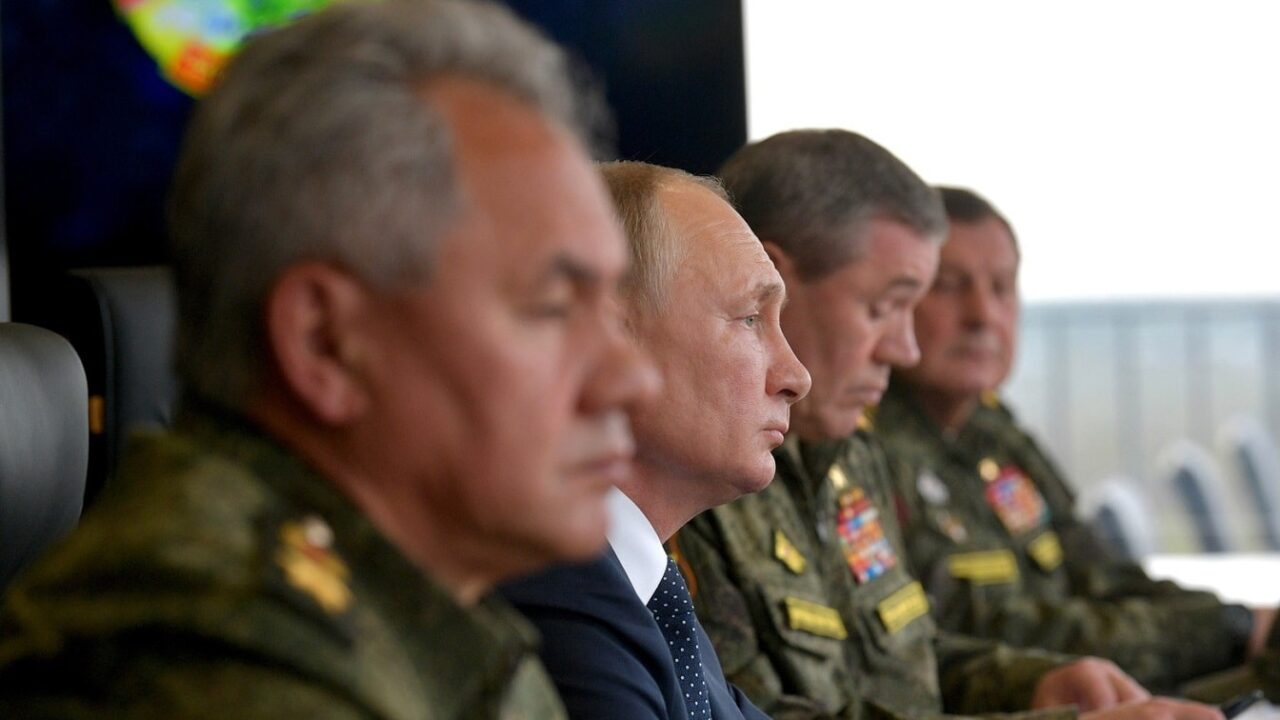President Vladimir Putin’s latest efforts to conquer Ukraine are now almost four months old. Russia’s initial assault faltered but, as Long War Journal’s Bill Roggio warned from the start, cheerleading Ukraine is not a strategy, especially as Russia will grind Ukraine down and outlast Western resolve beset by President Joe Biden’s concern about escalation and European mercantilism. Recent comments by former Secretary of State Henry Kissinger give Putin hope that his gamble will succeed.
The West might compartmentalize conflict, but what happens in Ukraine does not stay in Ukraine. As Putin challenges the rules of the post-World War II liberal order and is poised to succeed, other dictators appear ready to replicate his strategy for their own land grabs.
Consider Azerbaijan, for example. Speaking at the opening of the IX Global Forum in Baku on June 16, the Azeri dictator Ilham Aliyev again threatened to launch a war of aggression against Armenia proper. “In November 1920, six months after the Sovietization of Azerbaijan, the Soviet authorities took the historical part of our country, Zangazur, and annexed it to Armenia,” he said, threatening to invade and annex southern Armenia in the same manner that Putin did first to Crimea and now does to Donbas. Aliyev’s demand: Armenia forfeits its claim to Nagorno-Karabakh, an Armenian territory assigned by Joseph Stalin to Azerbaijan from which it subsequently voted to succeed under the terms of the Soviet constitution.
Aliyev’s words are not empty. Earlier this month, I visited the border area between Armenia and the Azerbaijan’s Nakhchivan enclave. Persistent snipping across the border has forced the Armenians to build a large berm to protect civilian cars and trucks. In Yeraskh, an Armenian town in undisputed territory, Azerbaijani officials objected to the raising of an Armenian flag simply because it was visible from their side of the border a half-mile away.
In Nagorno-Karabakh, the final status of which Aliyev had committed to resolving through diplomacy before he launched a surprise attack on the centenary anniversary of the Ottoman invasion of Armenia, Aliyev has begun a harassment campaign across the line of control. Snipers fire on civilian villages, and Azeri forces light up civilian homes with floodlights at night. And, while Azerbaijan, its lobbyists in Washington, and its supporters in the think tank community continue to depict it as a secular state, Azerbaijan has begun broadcasting calls to prayer from military trucks into Christian villages. The incitement that Azerbaijan now directs to the Armenian community in Nagorno-Karabakh is reminiscent of the incitement that immediately predated the 1994 anti-Tutsi genocide in Rwanda, and Azeri rhetoric toward Armenia proper has parallels in Saddam Hussein’s rejection of Kuwait’s right-to-exist prior to Iraq’s 1990 invasion of its southern neighbor.
In Turkey, Recep Tayyip Erdogan also pays close attention. Beyond Russia, there is perhaps no other country today more willing to engage in offensive wars of conquest against neighbors. Turkey has effectively annexed a third of Cyprus, not only ethnically cleansing that section’s Greek population but also waging cultural genocide against Turkish Cypriots who traditionally reject Erdoǧan’s doctrinaire Islamism. Turkey has likewise occupied portions of Iraq for more than a quarter-century and shows no willingness to depart. Greece remains on high alert after Erdogan recently laid claim to Aegean islands recognized for centuries as Greek. Turkish colonization of Kurdish-populated areas in northern Syria continues and could soon become far worse. As National Security Council official Brett McGurk remarked, “If you allow Turks into Syria, they will never leave because they consider northern Syria as their rightful homeland.”
National Security Advisor Jake Sullivan regularly chairs meetings to discuss the latest in Ukraine and calibrate policy. That is necessary but it will be a tremendous mistake to believe that the problem today involves only Russia and Ukraine. Western weakness and lack of resolve threaten to open Pandora’s Box. Today, Russian forces ravage Ukraine. Absent any strategy to defend and deter Armenia and Syrian Kurdistan, the Ukraine war will be just the first chapter in a cascade of conquest. It is time to recognize the mistake of the past year and understand that proactive deployments, military transfers, and sanctions are both cheaper and more effective than a reactive scramble to roll back an invasion.
Expert Biography – Now a 1945 Contributing Editor, Dr. Michael Rubin is a Senior Fellow at the American Enterprise Institute (AEI). Dr. Rubin is the author, coauthor, and coeditor of several books exploring diplomacy, Iranian history, Arab culture, Kurdish studies, and Shi’ite politics, including “Seven Pillars: What Really Causes Instability in the Middle East?” (AEI Press, 2019); “Kurdistan Rising” (AEI Press, 2016); “Dancing with the Devil: The Perils of Engaging Rogue Regimes” (Encounter Books, 2014); and “Eternal Iran: Continuity and Chaos” (Palgrave, 2005).

